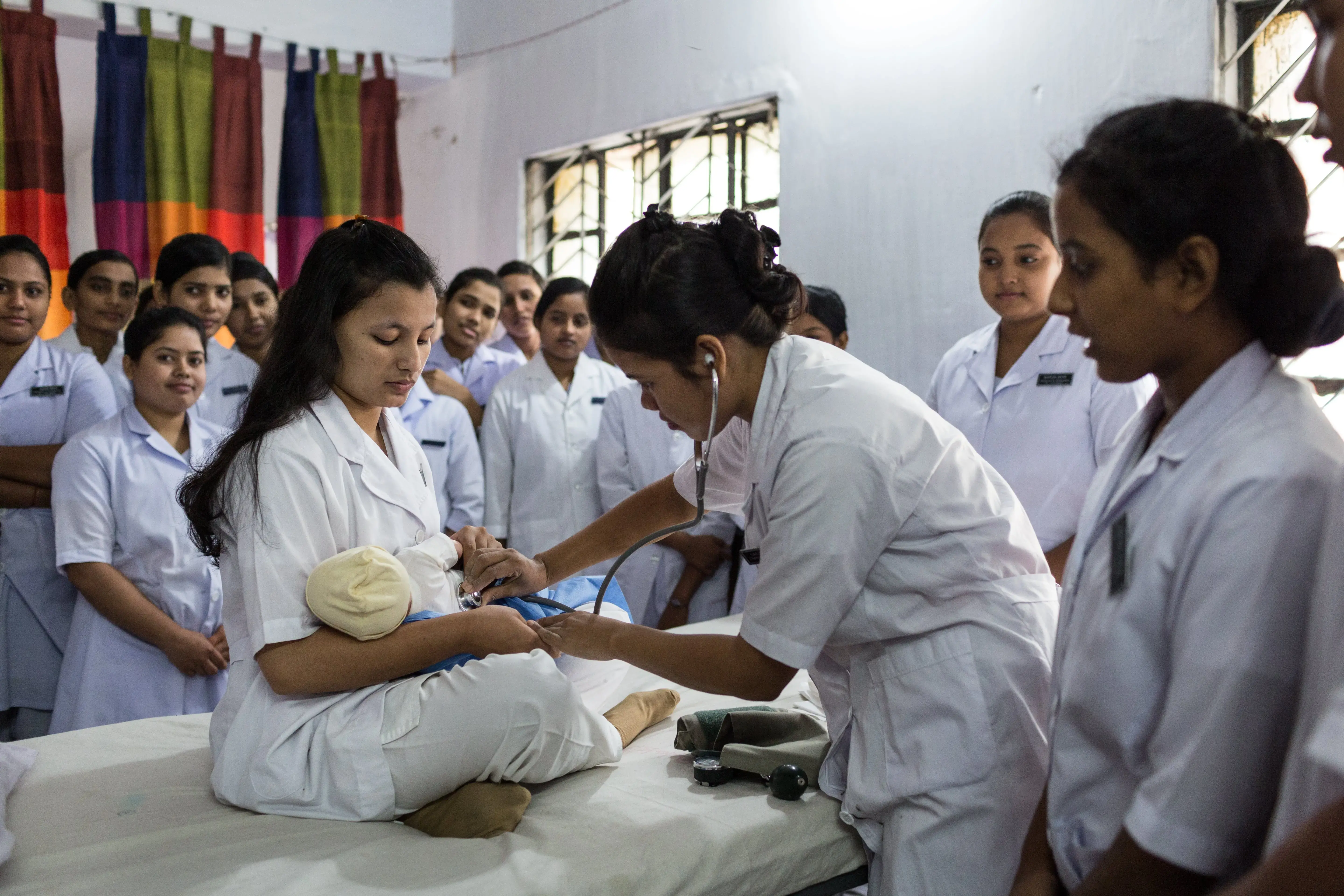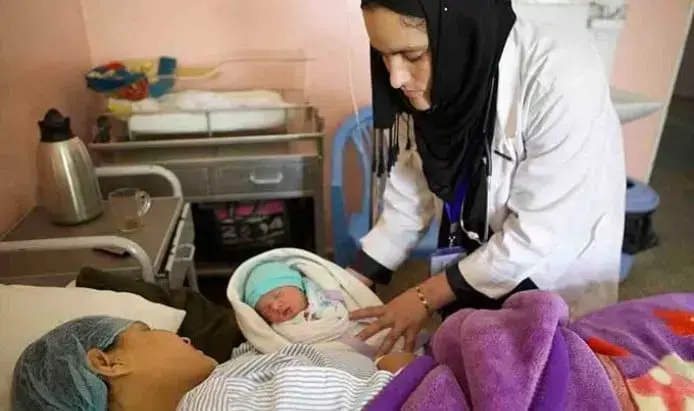More than one in three women in developing countries give birth alone – or with only relatives to oversee what is one of the most dangerous passages they will ever undergo. In some of the poorest countries, as few as 13 per cent of all deliveries are assisted by a midwife or a health worker with midwifery skills.
Every day, 1,000 women die and 5,500 newborns die in the first week of life for lack of adequate medical care.
The current global shortage of some 350,000 professional midwives means that women and their newborns die from complications that could have been easily prevented by a health worker with the right skills, the right equipment and the right support. Midwives are the unsung heroes of maternal and newborn health.
Investing in human resources for health is one of the soundest investments a county can make.
In 2011, UNFPA is highlighting the crucial role midwives play in saving lives and strengthening national health systems. Together with more than 20 partners, we will release the first ever State of the World’s Midwifery report in June. We will scale up our joint “Investing in Midwives Programme,” with the International Confederation for Midwives to cover 30 countries. And we will join the thousands of midwives at the Triennial Midwives Congress in Durban, South Africa, in June to discuss human resources for health and the way forward.
As the Executive Director of UNFPA, I commend the important work of midwives. Midwives deliver – and not only babies. They save lives and promote good health in societies as a whole. They are an essential workforce in an effective healthcare system.




